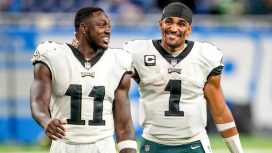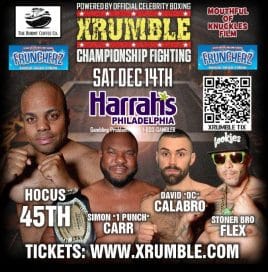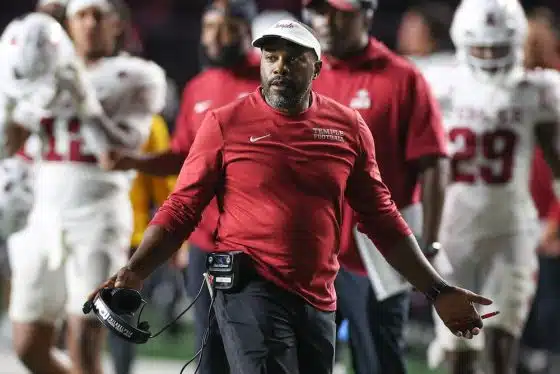Phillies
Top 25 Players to Ever Play a Game for the Phillies: No. 13, Dick Allen
By Matt Albertson, Historical Columnist
Philadelphia Inquirer staff writer Ron Smith noted in the June 23, 1964 Inquirer that someone asked Phillies manager Gene Mauch how good Richie Allen was. Mauch said, "I wouldn't be surprised if Richie singled to both right and left field on the same pitch one of these days. He'll split the ball right in half." Allen was traded five years later to the St. Louis Cardinals near the end of the 1969 season, but some fans still felt that Allen was one of the best players the franchise ever had or ever would have. The Inquirer reported some of these remarks in their October 12, 1969 issue: "You can't get a much better player" one person said. "Another 50 years will go by before we get another star like him" commented another.
As I mentioned in last year's Sports Talk Philly "Top 25 Phillies of All-Time" countdown, Allen was a tremendous slugger and all-around baseball player:
"In the history of the Philadelphia Phillies, no player has packed a wallop like Allen – not Ryan Howard, not Mike Schmidt and not Jim Thome. Allen was in a class all his own. He swung a gargantuan 42 ounce bat which helped power multiple baseballs to tape measure distances, even a few which were projected to be over 500 feet. This kind of power put fans on the edge of their seats whenever Allen stepped into the batters box.
Not only could Allen hit for power, but he was a nimble base runner as well, as he averaged 30 doubles and seven triples a season. He stole 133 bases in his career, while being caught 52 times. Those numbers may seem pedestrian, but remember Allen was known primarily as a superb power hitter."
During the 1964 end-of-year swoon, Allen did his best to carry a weary team to its first pennant in 14 years. During that legendary swan dive, his efforts alone coincided with a mind-boggling 10-game losing streak. He compiled an 11-game hitting streak and hit a Ty Cobb-esque .429. On October 4, with the Phillies needing a win over Cincinnati and a Cardinals loss to force a playoff, Allen went three for five and hit two home runs in a 10-0 drubbing of the Cincinnati Reds.
There was no question that Dick Allen could get on base often and hit with power. During his 15-year career, Allen excelled in batting average, home runs, RBIs, slugging percentage and on-base percentage. He was a seven-time All-Star and played multiple defensive positions in the both the infield and outfield throughout his career.
In 1972, as a member of the Chicago White Sox, Allen was awarded the American League's MVP award where he led the league in home runs (37), RBI (113), walks (99) and OPS (1.023). He was, without a doubt, one of the most talented players of his era, finishing his career with at or near Hall of Fame numbers; his career slash being .292/.378/.534.
Career Accomplishments
- 1964 National League Rookie of the Year
- 1972 American League MVP
- Seven-time All-Star
- Hit over .300 in seven different seasons (four times with Phillies)
- Ranks 21st all-tim in MLB history in career OPS+ (156)
- Ranks 61st all-time in MLB history in career offensive WAR (69.9)
- Phillies Wall of Fame inductee 1994.
*Awards were not factored into the formula
Career-Defining Moment
Any number of moments could be chosen to be Allen's "career-defining moment," but Allen is the lone exception on our list for which an in-game exploit is not career defining. Sure, there are the multiple 500+ foot home runs. There is the 1972 AL MVP. There is the fact that Allen led all of baseball in OPS+ (the measure of a hitter) during a 10-year period that included Willie Mays, Hank Aaron, Willie McCovey etc.
But Allen's career-defining moment is his trade to the St. Louis Cardinals in exchange for Byron Browne, Joe Hoerner, Tim McCarver and Curt Flood. Allen's popularity with the Phillies brass and fanbase waned in the mid to late 1960s, when some in the press identified him as a clubhouse cancer, albeit now recognized as a misunderstood superstar unappreciated in a city that suffered from years of racial unrest. Curt Flood, who helped the Cardinals to three National League pennants, refused to report to Philadelphia and sought legal recourse from the century-old reserve clause because Philadelphia and the Phillies had a reputation as being unkind to black players. Allen's time in Philadelphia was proof that the city didn't know how to handle a brutally honest black superstar. What followed was a year long legal case against MLB and Commissioner Bowie Kuhn.
The United States Supreme Court ultimately ruled against Flood and player's union head Marvin Miller but the case was monumental in sports history because it ultimately ushered the era of free-agency into major league baseball. Allen was a catalyst for all of this because of his growing discontent with the Phillies organization and treatment by the fanbase led the club to ultimately deal him to whoever would take him.
Pittsburgh Pirates Hall of Famer Willie Stargell placed Allen's controversial reputation into context.
"Dick Allen played the game in the most conservative era in baseball history. It was a time of change and protest in the country, and baseball reacted against all that. They saw it as a threat to the game. The sportswriters were reactionary too. They didn't like seeing a man of such extraordinary skills doing it his way. It made them nervous. Dick Allen was ahead of his time."
Reasoning for ranking
Allen scored 44 points in our formula. He totaled 58.7 WAR, averaging 3.91 WAR over his 15 seasons. He had 11 seasons of 2+ WAR and six seasons at 5+ WAR, and two seasons at 8+ WAR totaling 39 points. His 0.912 OPS ranks 55th all-time and his 351 home runs rank 92nd all-time totaling five points.
Allen scored eight points on our subjective importance scale because he was instrumental in the club's infamous 1964 season, for which he won the 1964 National League Rookie of the Year award, but also because he is "Philadelphia's Jackie Robinson".
Explanation of scientific formula
The player rankings formula combines both traditional and advanced statistics/metrics and assigns a point total to each category.












































